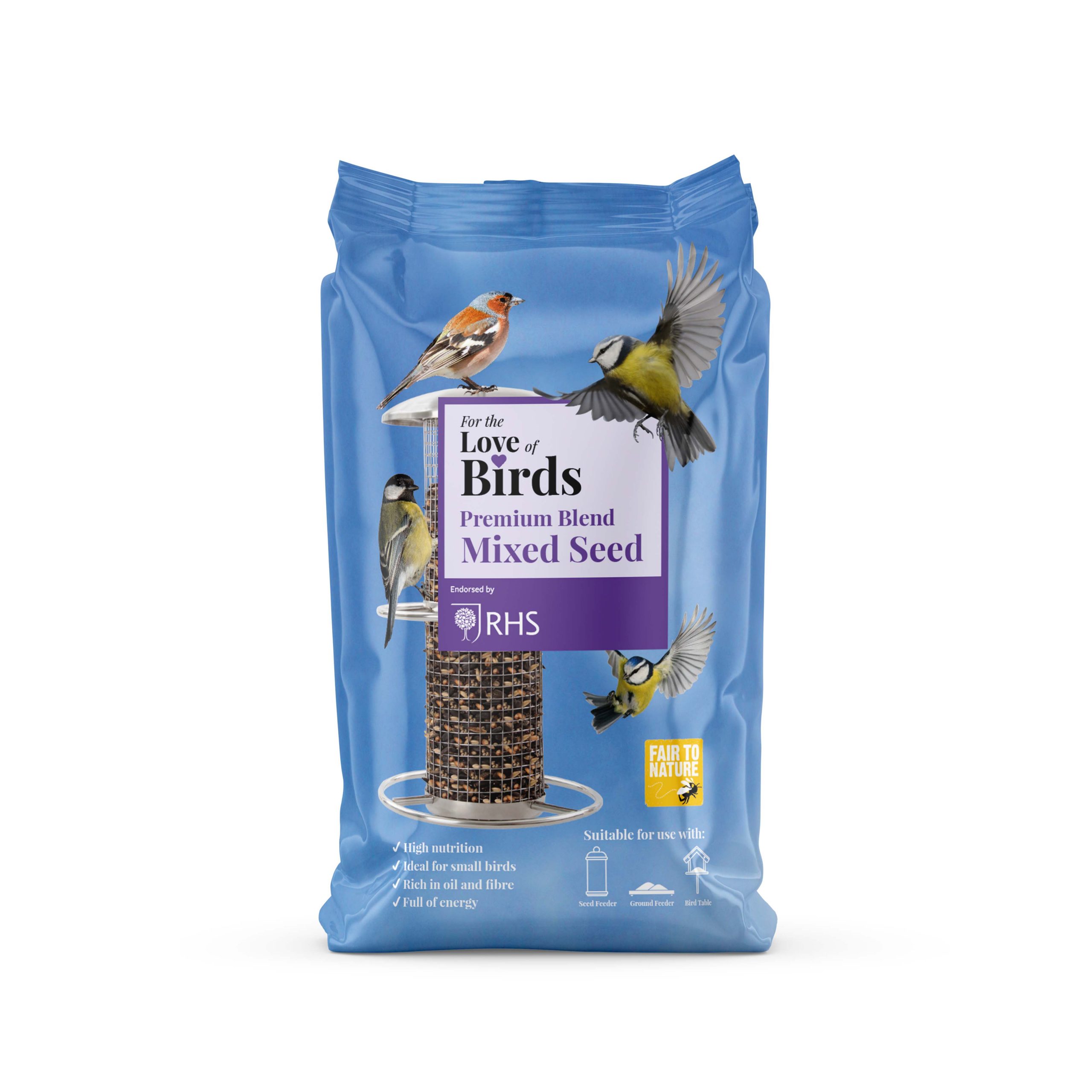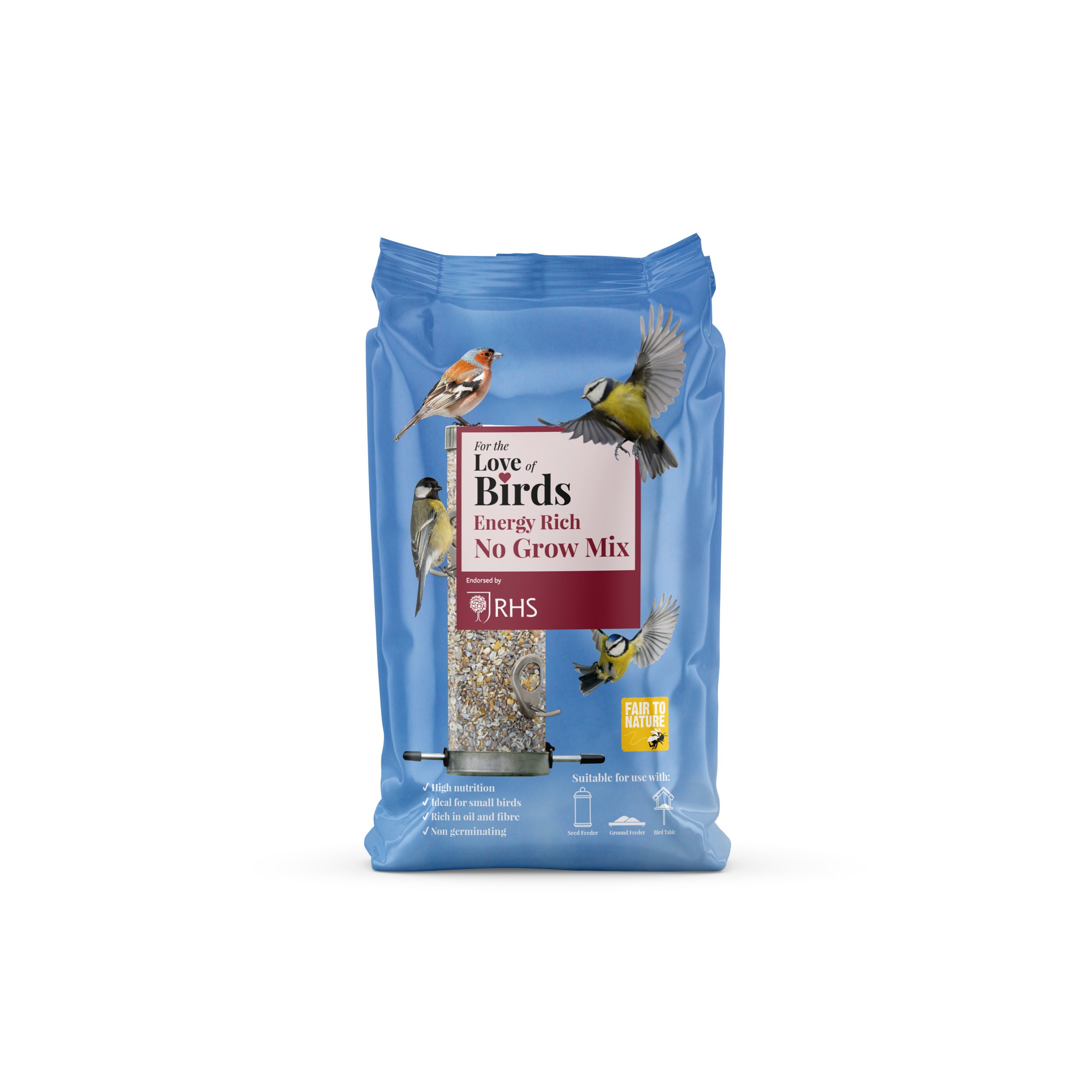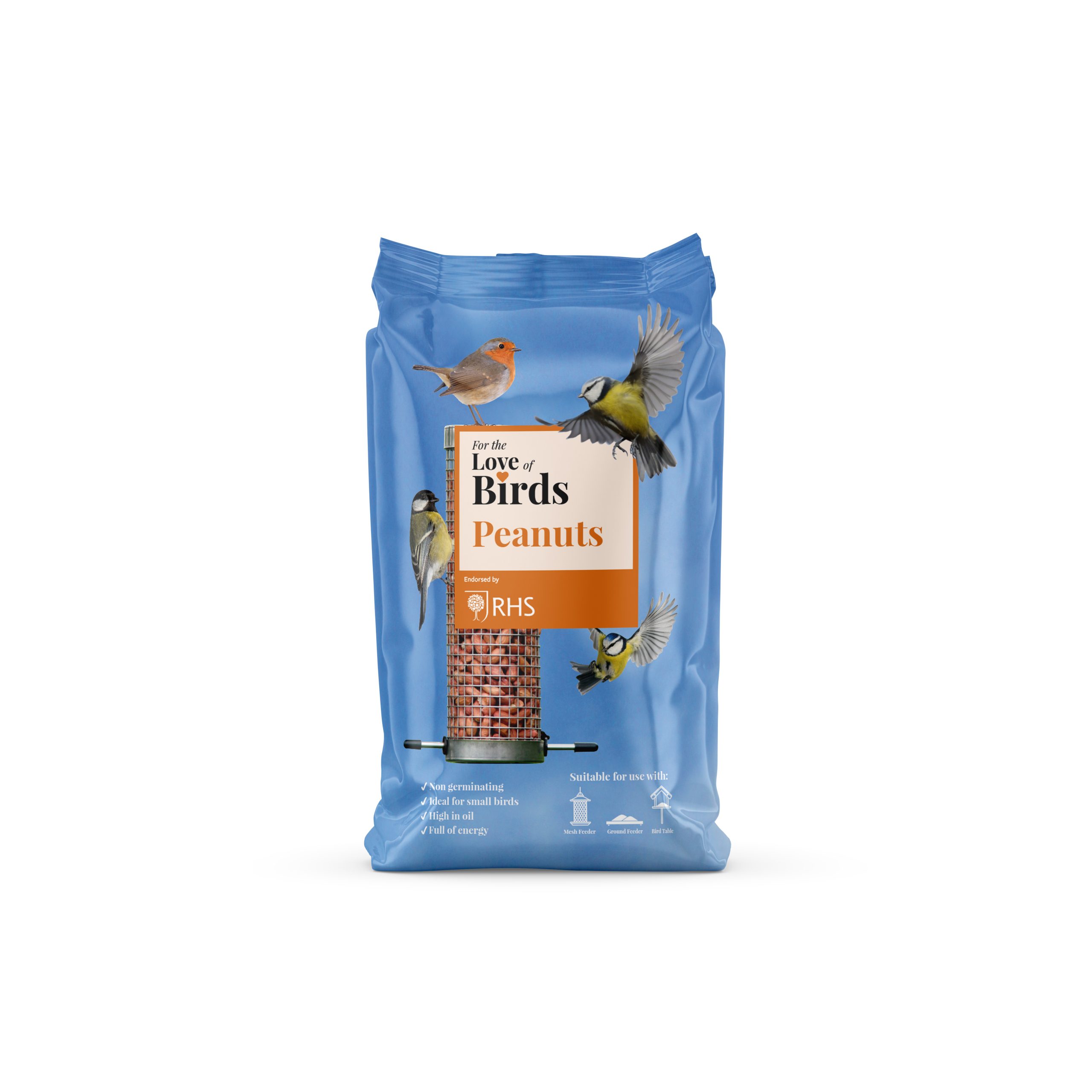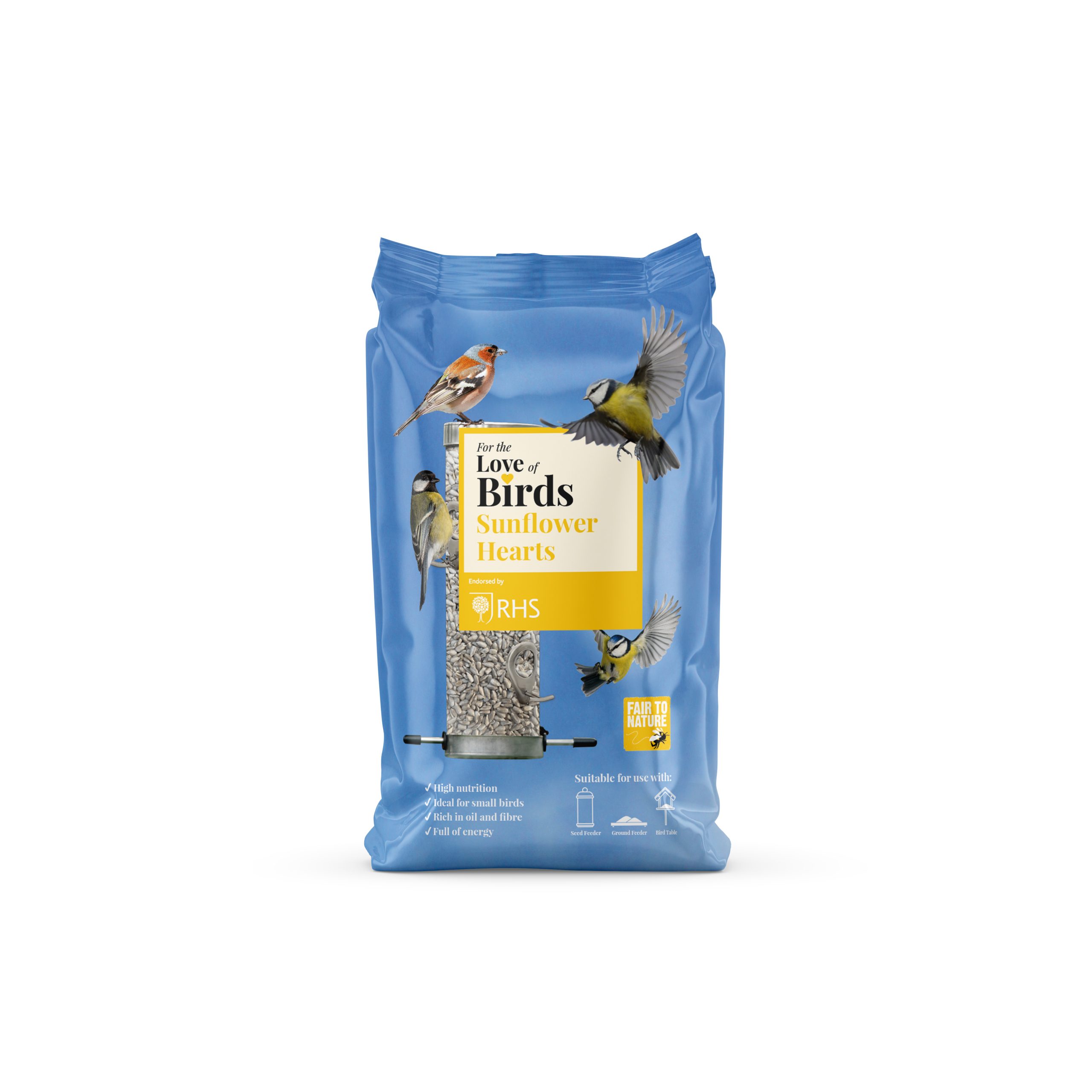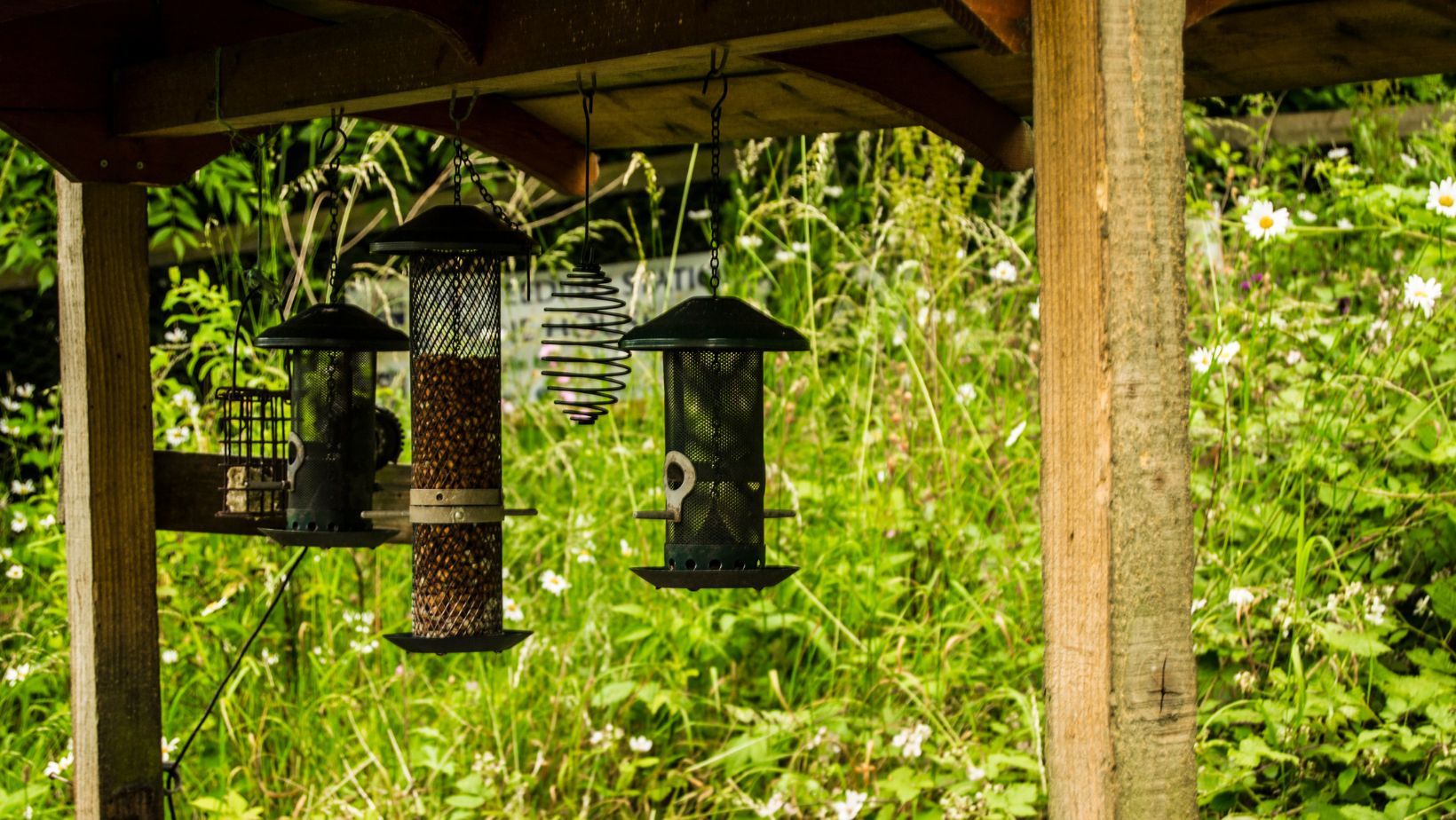
Hearing the bird song while you’re in the garden on a warm sunny day is a heartwarming feeling most of us have experienced. Providing food for birds will not only help your garden as they feed on pests, but it’s an enjoyable pastime you can enjoy all year round. There are over 570 bird species living in the UK, and knowing which types of food encourage different types of birds can help you spot your favourite flying friends more often!
It’s no surprise so many of us want to encourage more garden birds. With endearing characters and beautifully brightly coloured feathers, they’re wonderful to sit and watch.
We’ve launched a brand new range of bird feeds so you can welcome a wide range of great British birds to your garden. Read on to find out more about British garden birds, how to attract them to your garden and feed information.
British Garden Birds
From fiery robins to majestic magpies, here is a list of the common garden birds you may have seen in your garden.
- Blackbird
- Robin
- Starling
- Great Tit
- Wood Pigeon
- Chaffinch
- Gold Finch
- Collared Dove
- Blue Tit
- House Sparrow
- Carrion Crow
- Magpie
- Jay
- Wren
- Goldcrest
- Greenfinch
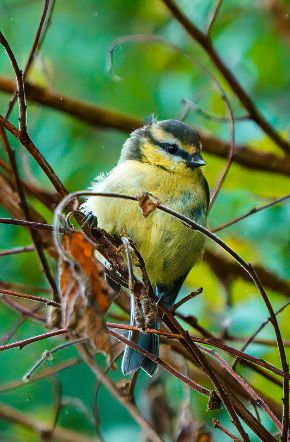
If you’re lucky, you may have spotted some rare garden birds such as:
- Nightingale
- Red-Backed Shrike
- Dunnock
- Great Spotted Woodpecker
- Common Kestrel
- Sparrowhawk
How birds can help your garden?
Whether your seedlings are being savaged by slugs or aphids are taking over your roses, birds are nature’s pest army. When you feel like your garden is being overrun by pests, it may be because there’s an imbalance in the natural food chain. Every bug is a meal for someone and when there are plenty of birds in your garden they will soon get rid of the excess!
For example, blue tits devour aphids so if you’re struggling with that particular pest, use bird food to encourage them. If slimy critters are a munching away at your seedlings, encourage Thrushes. They eat slugs, snails and their eggs.
Caterpillars are cute looking pests, but they will nibble through and destroy cabbages in no time! As well as planting nasturtiums as a sacrificial plant, encouraging wrens is a good way to control populations. Wrens are energetic and fun to watch in your garden too, especially when you see them catching unwanted bugs.
If you’re lucky enough to attract woodpeckers into your garden, they can really help keep bugs at bay. They will drill into bark in search of beetles, aphids, millipedes, and other insects. So, now you know what birds you need in your garden, its time to put out the right bird feed to attract them.
Food to attract bug-loving birds
The ‘For the Love of Birds’ range from Empathy features four specially blended seed varieties including a Premium Blend Mixed Seed, Energy Rich No Grow Mix, Sunflower Hearts, and Peanuts. The high-nutrition feeds will keep common varieties such as house sparrows, blue tits and robins well fed, whilst protein-rich peanuts will help to attract the not-so-common woodpecker and long-tailed tit to gardens.
Sunflower hearts will attract most species of birds to your garden but they are particularly loved by goldfinches and tits. While peanuts are a favourite of wrens, great tits, blue tits, woodpeckers, jays, doves and crows. Just make sure you have a squirrel proof bird feeder for peanuts, or they will take the whole lot!
The premium blend of seed includes Sunflower seeds, oats, yellow millet, red millet and red dari. This feed will attract most garden birds but the following are especially fond of it:
- Blue Tit
- Great Tit
- Chaffinch
- Greenfinch
- Robin
- House Sparrow
Our no grow mix includes cut maize, flaked oats, smaller sunflower hearts, kibbled peanuts and suet pellets to attract a similar range of birds. Each For the Love of Birds pack is 100% recyclable too.
Other ways to attract birds
As well as providing a crunchy snack, there are other things you ca do to make sure you get plenty of feathered friends.
Provide Fresh Water
Vital for drinking and bathing, whether you have a fancy water bath or just a dish your birds will be thankful. Place it somewhere shaded and where birds can have a good view of potential predators. Water is best kept in a shallow container, no deeper than two inches.
Nest Boxes
One of the best ways to attract birds to your garden is providing them with somewhere safe to nest. If you have plenty of trees in your garden this will be fine but if not, adding a few nest boxes is best. Don’t put your nesting box in direct sunlight or where it will be prone to strong winds – somewhere between north- and east-facing is best.
Bird-friendly Plants
Berry-rich trees and shrubs like rowan, hawthorn, guelder rose and holly are all great natural food sources and also help to provide shelter. Plant some wildflowers to attract the insects that birds love to feed on. We suggest only using organic pest control methods.
Bird Feeder Guide
Now that you have your bird seed, you’ll need somewhere safe to put it. Squirrels love bird seed too and will quickly wipe out an entire feeder. Metal fittings usually last longer than plastic and they are more resistant to squirrel damage. You may find that there are a lot of seed drops on the floor, you can fit a tray that will catch dropped seed and provides extra perching space. Be aware though, that if you wish to attract smaller birds, seed trays are an inviting place for larger birds.
For peanuts you will need a ‘nut and nibble’ feeder made from steel mesh. These are often popular with tits, woodpeckers, nuthatches and other species that cling.
Preventing Predators
Grey squirrels are a big problem when feeding birds. They will chew through expensive bird feeders leaving them useless. Placing your feeders at least 2 metres away from any jumping-off point, such as a tree, shrub or fence will help to keep them away. You can buy ‘squirrel proof’ feeders too but even these don’t always stand up to the chewing of the furry rodents.
Another visitor to look out for is cats. Domestic cats often kill or injure birds for fun, so to keep them away you must place bird feeders up high. Similar to squirrels, make sure you place your feeders away from dense cover and places where cats can lie in wait. Keeping a clear area around your feeders should help the birds stay out of cat pouncing distance.

Hygiene Tips
- Ensure feeding areas are cleaned regularly and replace any old or wet food
- Wash hands thoroughly after handling food and feeders

